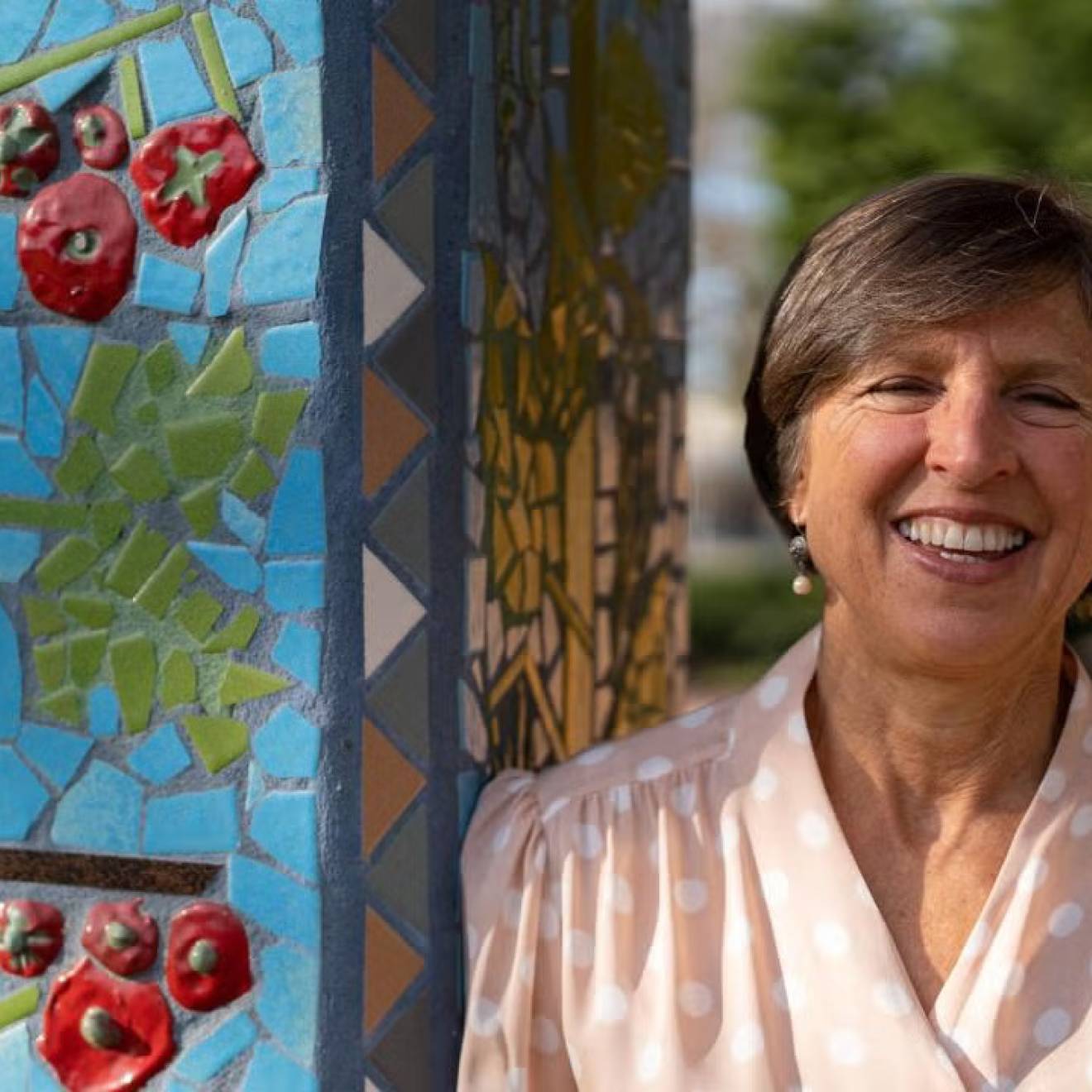Kris Lovekin, UC Riverside

Two scientists from UC Riverside and two from UC Davis came together Nov. 3 and 4 to discuss the details of genetically modified food. They were sure of a couple of things: genetic engineering (GE) is a tool with diverse applications, not a good or bad product itself, and the process for regulating GE foods (GMOs) in the United States can be improved.
“Technology can be embedded in the seed, which is good for the developing world,” said Josette Lewis, associate director of the World Food Center at UC Davis, in front of an audience of about 300 people at UCR Extension. She said small farmers often do not have access to all the tools that are available to more advanced farmers, and that genetically engineered seeds are being grown by millions of small farmers in developing countries.
The Food and Drug Administration has a voluntary consultation process for regulating genetically engineered foods, but that should be mandatory, according to Greg Jaffe of the Washington D.C.–based Center for Science in the Public Interest, and the moderator of the panel. He said strengthening FDA’s current reviews of genetically modified foods is important for consumer confidence in their safety.
Belinda Martineau, a geneticist and former genetic engineer, said transparency is the best policy. She said that the world’s first commercialized GE food was labeled and yet it was popular with consumers. “Water has to be listed as an ingredient in foods, so why not a GE insecticide?” she asked.
Alan McHughen, a UC Cooperative Extension specialist and geneticist from UC Riverside, said labels are impractical. “The people who want labels are not going to buy the product,” he said. “So the cost of labeling will be off loaded onto those who either don’t want labels and the poor, who can’t afford food as it is.”
Norm Ellstrand, a professor of genetics at UC Riverside, said he would like to see more information available for consumers who are skittish. His advice for people who want to avoid GMO: look for organic food and eat very little processed food. He said in the United States, 90 percent of corn and soy crops are genetically modified, and their products are frequently found in processed food.
The panel, called "GMOs: All Facts, No Fiction” was held at UC Davis one night and UC Riverside the next. Funding for the talk came from the UC Global Food Initiative. This is the first of what may be an annual series with the theme “Healthy Students, Healthy Campus, Healthy Community.” It was organized by the Global Food committee of UC Riverside, which was led by Peggy Mauk, director of UC Riverside’s agricultural operations; and Cheryl Garner, UC Riverside’s executive director of dining services.
Norm Ellstrand studies plant population genetics and is one of the country’s foremost experts on plant gene flow, the movement of genes from one population to another. His research has involved the study of the possibility of escape of genes from genetically engineered crops into their wild relatives as well as the potential consequences of that escape. He earned a B.S. in biology from the University of Illinois Urbana-Champaign. His research interest in plant evolutionary genetics started with his dissertation work at the University of Texas at Austin where he received his Ph.D. in 1978. He is the author of the book, “Dangerous Liaisons? When Cultivated Plants Mate with Their Wild Relatives.” He is leading the effort to develop the California Agriculture and Food Enterprise (CAFÉ) at UC Riverside.
Josette Lewis came to the World Food Center after a distinguished career advancing agricultural innovation in both the private and public sectors. She spent 16 years at the U.S. Agency for International Development working in international research and development, then as senior biotechnology adviser and finally as director of the Office of Agriculture, where she played a lead role in developing the Obama administration’s global hunger and food security efforts.
Alan McHughen is a public sector educator, scientist and consumer advocate. A molecular geneticist with an interest in crop improvement and environmental sustainability, he helped develop U.S. and Canadian regulations governing the safety of genetically engineered crops and foods. His book, “Pandora’s Picnic Basket; The Potential and Hazards of Genetically Modified Foods,” uses understandable, consumer-friendly language to explode the myths and explore the genuine risks of genetic modification (GM) technology.
Belinda Martineau earned her B.A. in biology at Harvard, her Ph.D. in genetics at UC Berkeley and carried out two years of postdoctoral research at the University of Chicago. She is an inventor on multiple patents involving recombinant DNA technology, a preparer of safety documents submitted to the FDA to gain approval of the world’s first commercially available genetically engineered whole food, and author of dozens of articles on plant science (peer-reviewed and otherwise) and a book: “First Fruit: The Creation of the Flavr SavrTM Tomato and the Birth of Biotech Food.” Martineau is currently a writer, of grants at the Institute for Social Sciences at UC Davis and independently.
Gregory Jaffe is the director of the Project on Biotechnology for the Center for Science in the Public Interest, a nonprofit consumer organization located in the United States. He is an attorney who has worked as senior counsel with the U.S. EPA, Air Enforcement Division. He is a recognized international expert on agricultural biotechnology and biosafety and has published numerous articles and reports on those topics. Jaffe earned his B.A. with high honors from Wesleyan University in biology and government and then received a law degree from Harvard Law School.

